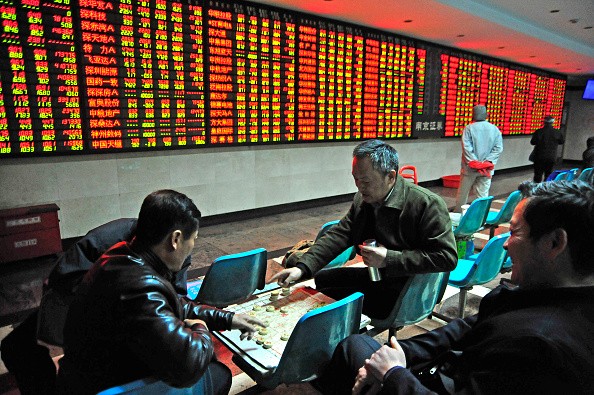The continuing efforts of Chinese regulators to curb shadow banking and speculative trading have triggered the drop of more than 1 percent in China stocks on Monday, April 24, amid signs that the government would allow further volatility in the market, CNBC reported.
But despite the drop in stocks--the biggest loss for the year--the Chinese economy remains stable as signs have "provided a good external environment and a window of opportunity to reduce leverage in the financial system, strengthen supervision and ward off risks," according to a Xinhua News Agency report on Sunday, April 23.
"Over the past week, interbank rates trended higher, bond and capital markets suffered from sustained corrections and some institutions faced liquidity pressure. But these have little impact on the stability of the broader environment," the report said.
By mid-day on April 24, the Shanghai Composite Index fell by 1.6 percent to 3,123.80 points, after last week's loss, seen as its biggest weekly loss this year.
At the blue-chip CSI300 index, stocks also dropped 1.3 percent to 3,432.11 points.
The loss is seen as the biggest for China's indexes since mid-December, and this year, the daily drop of more than 1 percent is rare for China's constantly changing markets.
"Even the better-than-expected Q1 data could not boost the market, as investors are concerned about regulatory risks," according to Larry Hu, an analyst at Macquarie Capital Ltd.
The country's insurance regulator said on Sunday that it will increase supervision of insurance companies to ensure their compliance with risk controls. It warned that it will investigate executives who violate the rules to prevent risk-taking actions.
Meanwhile, the banking regulators said on Friday, April 21, that the first-quarter growth in Chinese wealth management products and interbank liabilities has been reduced, indicating that the government has been successful in curbing financial risks.
Analysts, however, believed that the government will be cautious with its moves to prevent undue effect on the economic growth.
"Market risk appetites could continue to decline if financial regulation keeps tightening," Gao Ting, head of China Strategy at UBS Securities, said.
"Investors seem to mostly be responding by adjusting their positions, particularly by rotating into high-quality blue-chips."
But the banking sector remained bullish and only small-caps were affected with sell-offs, and startup stock fell nearly 2 percent, the report said.
In Hong Kong, the Hang Seng index fell 0.1 percent to 24,016.23 points, while the Hong Kong China Enterprises Index did not move at 10,045.78.



























